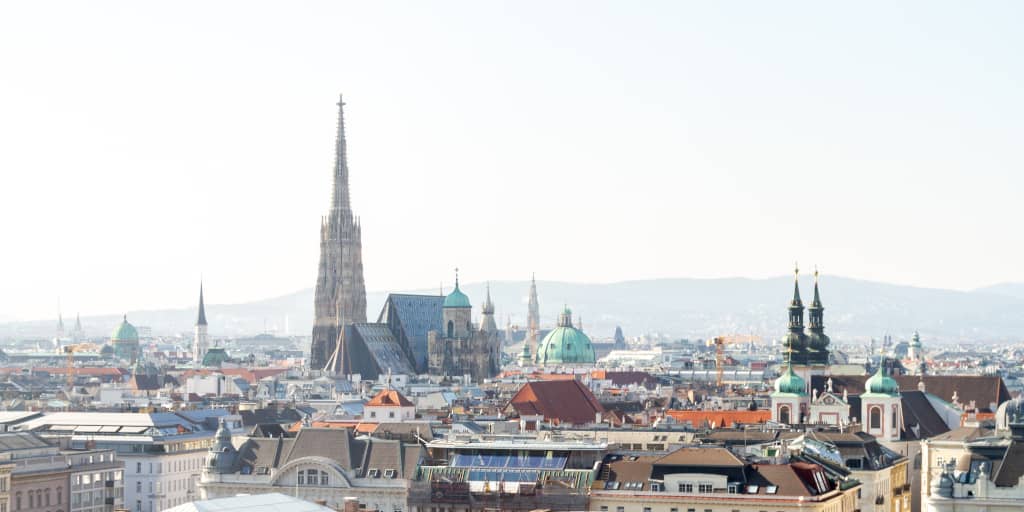I’m not used to drinking, so excuse me if I say too much.
I’m my father’s and mother’s only child.
He was born in Poland. She was born in Austria. Their daughter, I, was born in Israel, the land from which their ancestors had been exiled over two millennia earlier.
They are an almost impossible couple, she is older by five years, so they made a strange choice for the time. They bring on a tray cancer, family ghosts, a country in conflict and they get a questioning mind.
The mind imagines.
They could have given me birth far north, instead of having me in Israel–not as far north as Iceland or Greenland, but as far as Austria or Poland.
I would have been born to them, my mother and father, with a changed history.
For example:
He completed his education, the war did not disrupt his life, and he’d decided to try his luck in Vienna in the textile industry.
Nobody threw my mother’s family out of their apartment, so my mother still lived there, on Schonngasse 3, Vienna.
The key to history is randomness.
Imagine:
They met each other in Vienna and fell in love, or (considering the context of time and place and trying for accuracy) they considered each other a good match, (despite the age difference-this doesn’t change). I would have been born an Austrian citizen, spoken German as a first language and Polish as a second.
‘What else?’ I am asking, with the full glass raised.
Yes.
My grandparents, first-degree cousins, heard that matches between relatives were not good for health, so they supported my mother’s surprising choice to marry a complete stranger. They liked my good-hearted father, after, of course, he’d proved himself worthy of their daughter’s brilliance.
My aunt didn’t flee to Israel and didn’t meet her Jewish-German Husband on the way, so she lived an imagined life all of her own. My cousins would have been the fruit of another marriage, different from the cousins I know.
Or else:
My father was too poor to travel to Vienna and meet his future wife, (a real possibility) but she traveled across Europe and visited the famous Jewish community in Warshaw in Poland, and then the smaller one in Piotrków Trybunalski.
My father was studying Hebrew there or doing simple jobs as a volunteer. She envied the girls he joked with, all less pretty than her, and she even wrote her sister about him, and shocked her parents with her decision to stay longer than planned.
He always had a craving for the exotic, and a Viennese intellectual was exactly just that.
Out of this marriage, I was born Polish, and German was my second language. As for the extended family: my grandparents and my father’s little brother were still alive in the 1940’s. His sister might not have fled to Argentina and his older brother didn’t leave for Israel.
That brother, my uncle, might still have liked alcohol too much.
The whole family treated my mother with deep respect, but also with some suspicion because she was from the big city, but once I was born they found common ground, and she became easier to love.
And if they hadn’t met, and hadn’t married, and I hadn’t been born (not to them or not at all,) their genes would have traveled separately, gone elsewhere or dissipated. Genetic cancer wouldn’t have killed us one after another.
Here. I’ll drink to that!
Avital Gad-Cykman, the author of Life In, Life Out (Matter Press), and the upcoming Light Reflection Over Blues (Ravenna Press), has published stories in Iron Horse, Prairie Schooner, Ambit, CALYX Journal, Glimmer Train and McSweeney’s Quarterly among others. Her work has been anthologized in W.W. Norton’s International Flash Fiction, Best Small Fiction (Sonder Press) and elsewhere. She lives in Brazil. Find Avital at @avitalgadcykman.

